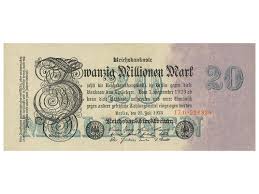A Look Back at 1923: A Year of Transformation

Introduction: The Importance of 1923
The year 1923 was a significant turning point in global history, marked by a series of impactful events that shaped the sociopolitical landscape of the 20th century. World War I had ended just a few years earlier, and nations were grappling with the consequences of the war, including economic instability and societal shifts. Understanding the events of 1923 provides insight into the evolution of modern history and the currents that have shaped contemporary society.
Key Events of 1923
The Hyperinflation Crisis in Germany
One of the most notable events of 1923 was the economic crisis in Germany, where hyperinflation reached unprecedented levels. By the late summer, the value of the German Mark had plummeted, with prices doubling daily. This economic chaos stemmed from the reparations imposed on Germany by the Treaty of Versailles, contributing to widespread social discontent and political instability.
Formation of the Turkish Republic
In geopolitical terms, 1923 marked the establishment of the Republic of Turkey, officially declared on October 29. This followed the dissolution of the Ottoman Empire, leading to significant reforms under Mustafa Kemal Atatürk, who aimed to modernize the new state. The transition from an empire to a republic was a crucial moment that influenced national identities across the region.
The Rise of Totalitarian Regimes
Additionally, 1923 saw the early signs of the rise of totalitarian regimes in Europe. Adolf Hitler attempted a coup, known as the Beer Hall Putsch, in Germany, seeking to overturn the Weimar Republic. Though initially unsuccessful, this event signaled the beginning of a more significant political movement that would eventually lead to Nazi Germany.
Conclusion: The Legacy of 1923
The events of 1923 were not isolated; they formed the foundation for many significant developments in the following decades. The hyperinflation crisis in Germany contributed to the conditions that enabled the rise of Adolf Hitler. The establishment of the Republic of Turkey exemplified the struggle between modernity and tradition, a theme that resonates in various parts of the world even today.
In retrospect, 1923 serves as a critical reminder of how pivotal moments in history can lead to profound changes. For readers, understanding these events helps appreciate the complexities of modern society and the historical roots of current affairs. As we navigate our own global challenges, the lessons of the past remain a valuable guide for the future.









